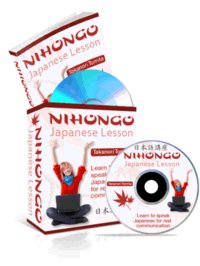Japanese Verb Groups
One of the characteristics of the Japanese language is that the verb generally comes at the end of the sentence. Since Japanese's sentences often omit the subject, the verb is probably the most important part in understanding the sentence. However, Verbs forms are considered to be difficult to learn. The good news is the system itself is rather simple, as far as memorizing certain rules. Unlike the more complex verb conjugation of other languages, Japanese verbs do not have a different form to indicate the person (first-, second, and third-person), the number (singular and plural), or gender.Japanese verbs are roughly divided into three groups according to their dictionary form (basic form).
Group 1: ~ U ending verbs
The basic form of Group 1 verbs end with "~ u". This group is also called Consonant-stem verbs or Godan-doushi (Godan verbs).
- hanasu (話す) - to speak
- kaku (書く) - to write
- kiku (聞く) - to listen
- matsu (待つ) - to wait
- nomu (飲む) - to drink
Group 2: ~ Iru and ~ Eru ending verbs
The basic form of Group 2 verbs end with either "~iru" or "~ eru". This group is also called Vowel-stem-verbs or Ichidan-doushi (Ichidan verbs).
~ Iru ending verbs
- kiru (着る) - to wear
- miru (見る) - to see
- okiru (起きる) - to get up
- oriru (降りる) - to get off
- shinjiru (信じる) - to believe
~ Eru ending verbs
- akeru (開ける) - to open
- ageru (あげる) - to give
- deru (出る) - to go out
- neru (寝る) - to sleep
- taberu (食べる) - to eat
There are some exceptions. The following verbs belong to Group 1, though they end with "~ iru" or "~ eru".
- hairu (入る) - to enter
- hashiru (走る) - to run
- iru (いる) - to need
- kaeru (帰る) - to return
- kagiru (限る) - to limit
- kiru (切る) - to cut
- shaberu (しゃべる) - to chatter
- shiru (知る) - to know
Group 3: Irregular verbs
There are only two irregular verbs, kuru (to come) and suru (to do).
The verb "suru" is probably the most often used verb in Japanese. It is used as "to do," "to make," or "to cost". It is also combined with many nouns (of Chinese or Western origin) to make them into verbs. Here are some examples.
- benkyousuru (勉強する) - to study
- ryokousuru (旅行する) - to travel
- yushutsusuru (輸出する) - to export
- dansusuru (ダンスする) - to dance
- shanpuusuru (シャンプーする) - to shampoo

By: Namiko Abe
Source: about.com




No comments:
Post a Comment